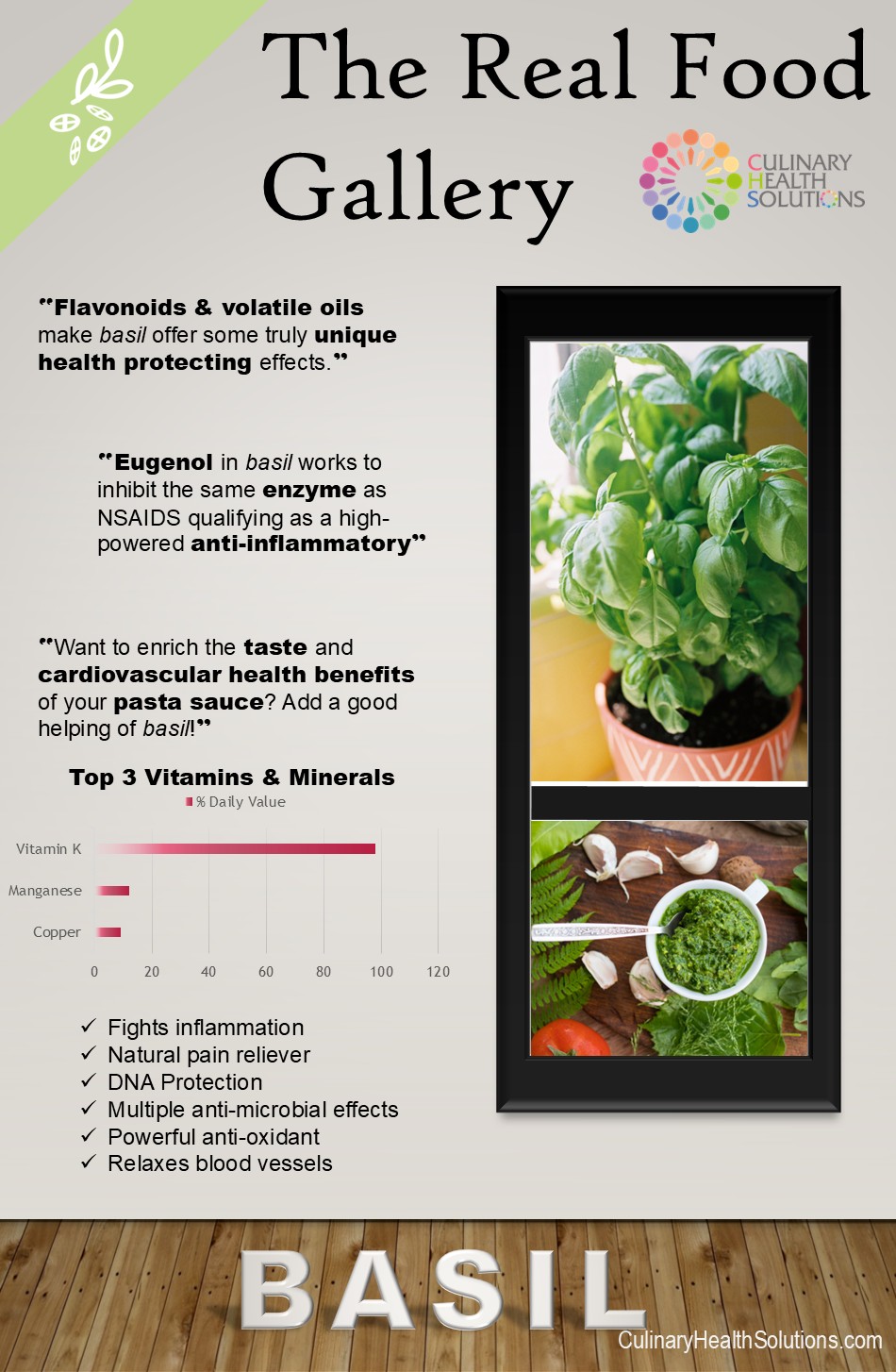Basil

The round, often pointed leaves of the basil plant looks a lot like peppermint to which it is related. Its highly fragrant leaves are used as a seasoning herb for a variety of foods but has become ever popular as the main ingredient in pesto, the mixture of basil, pine nuts and parmesan cheese.
Research studies on basil have shown unique health protecting effects in two basic areas: basil's flavonoids and volatile oils. The unique array of active constituents called flavonoids found in basil provide protection at the cellular level. Orientin and vicenin are two water-soluble flavonoids that have been of particular interest in basil, and in studies on human white blood cells; these components of basil protect cell structures as well as chromosomes from radiation and oxygen based damage. In addition, basil has been shown to provide protection against unwanted bacterial growth. These antibacterial properties of basil are not associated with its unique flavonoids, but instead with its volatile oils, which contain estragole, linalool, cineole, eugenol, sabinene, myrcene, and limonene. Lab studies show the effectiveness of basil in restricting growth of numerous bacteria, including : Listeria monocytogenes, Staphylococcus aureus, Escherichia coli O:157:H7, Yersinia enterocolitica, and Pseudomonas aeruginosa.
Essential oil of basil, obtained from its leaves, has demonstrated the ability to inhibit several species of pathogenic bacteria that have become resistant to commonly used antibiotic drugs. In a study published in the July 2003 issue of the Journal of Microbiology Methods, essential oil of basil was even found to inhibit strains of bacteria from the genera Staphylococcus, Enterococcus and Pseudomonas, all of which are not only widespread, but now pose serious treatment difficulties because they have developed a high level of resistance to treatment with antibiotic drugs.
Studies published in the February 2004 issue of Food Microbiology, have shown that washing produce in solution containing either basil or thyme essential oil at the very low concentration of just 1% resulted in dropping the number of Shigella, an infectious bacteria that triggers diarrhea and may cause significant intestinal damage, below the point at which it could be detected. While scientists use this research to try to develop natural food preservatives, it makes good sense to include basil
and thyme in more of your recipes, particularly for foods that are not cooked such as salads. Adding fresh thyme and/or basil to your next vinaigrette will not only enhance the flavor of your fresh greens, but will help ensure that the fresh produce you consume is safe to eat.
The eugenol component of basil's volatile oils has been the subject of extensive study, since this substance can block the activity of an enzyme in the body called cyclooxygenase (COX). Many nonsteroidal over-the-counter anti-inflammatory medications (NSAIDS), including aspirin and ibuprofen, as well as the commonly used medicine acetaminophen, work by inhibiting this same enzyme. (In the case of acetaminophen, this effect is somewhat controversial, and probably occurs to a much lesser degree than is the case with aspirin and ibuprofen). This enzyme inhibiting effect of the eugenol in basil qualifies basil as an "anti-inflammatory" food that can provide important healing benefits along with symptomatic relief for individuals with inflammatory health problems like rheumatoid arthritis or inflammatory bowel conditions.
